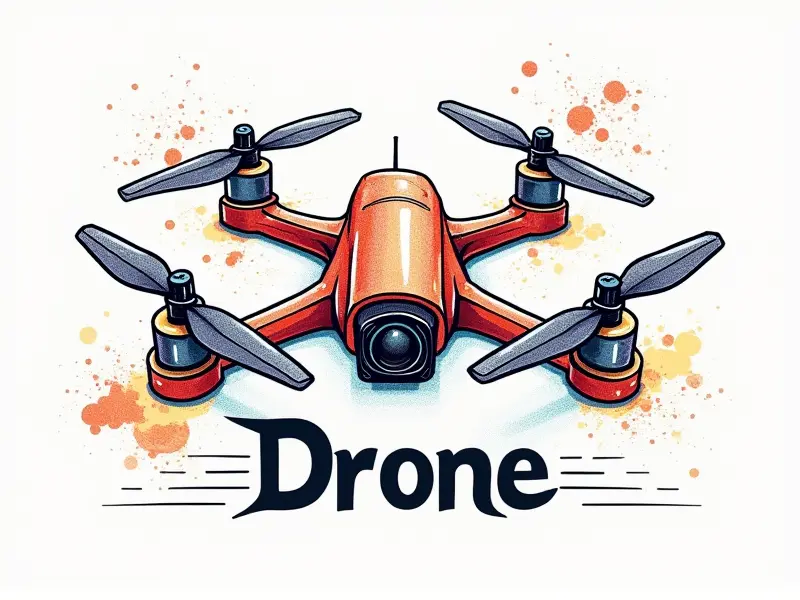What are drone regulations?

Drone regulations have become increasingly important as the use of unmanned aerial vehicles (UAVs) has grown exponentially. Whether you're a hobbyist, commercial operator, or just interested in the latest legal developments surrounding drones, understanding these rules is crucial to avoid fines and ensure safe flying practices.
Understanding FAA Drone Regulations
The Federal Aviation Administration (FAA) oversees drone regulations in the United States. These guidelines cover everything from registration requirements to operational restrictions, ensuring that UAVs are used responsibly and safely.
- Mandatory Registration: All drones weighing between 0.55 pounds (257 grams) and 55 pounds (25 kilograms), including any payload, must be registered with the FAA before use.
- Fly Within Visual Line of Sight: Operators must keep their drone within visual line of sight at all times to maintain situational awareness and avoid collisions.
- No-Fly Zones: Certain areas, such as restricted airspace around airports, military bases, or presidential events, are off-limits for drone operations.
Top Drone Laws You Must Follow Today
To comply with FAA regulations and avoid legal issues, follow these key laws:
- No Fly Zones: Always check the FAA's B4UFLY app or website to determine if your intended flight location is restricted.
- Height Limitations: Drones must not exceed 400 feet (122 meters) above ground level unless you have a waiver from the FAA.
- Nighttime Operations: Flying at night requires special authorization, and operators must ensure their drone is equipped with anti-collision lights.
Avoid Fines: Know Your Local Drone Rules
In addition to federal regulations, local laws can also impact your ability to fly a drone. Many cities have ordinances that restrict drone usage in public spaces or near sensitive areas like schools and hospitals.
- City Ordinances: Check with your city’s government website for specific rules regarding drone operations within municipal boundaries.
- Property Owner Consent: Always obtain permission from property owners before flying over private land or structures.
Drone Regulations 101: The Basics
The basics of drone regulations include understanding the legal framework and operational requirements set forth by regulatory bodies like the FAA. This includes knowing when and where you can fly your drone, as well as how to register it properly.
- Registration: Visit faa.gov/uas/registration for detailed instructions on registering your drone.
- Flying Requirements: Review the FAA’s Part 107 rules for commercial operations and recreational guidelines for hobbyists.
Flying Without Breaking Rules: Drone Legalities
To ensure compliance with all applicable laws, familiarize yourself with both federal and local regulations governing drone usage. Ignorance of the law is not a defense against legal penalties.
- Stay Informed: Regularly check for updates to FAA guidelines and consult with aviation experts if needed.
- Respect Privacy Rights: Be mindful of privacy concerns when capturing images or videos using your drone.
Stay Legal: Essential Drone Regulation Tips
Maintaining compliance with drone regulations requires diligence and awareness. Here are some essential tips to help you stay on the right side of the law:
- Always Register Your Drone: Failure to register can result in significant fines.
- Avoid Restricted Areas: Know your no-fly zones and plan flights accordingly.
Drone Registration Requirements Today
The process of registering a drone is straightforward but crucial. You must provide basic information about yourself and the drone, including make, model, serial number, and contact details.
- Online Portal: Use the FAA’s online system to complete your registration quickly and easily.
- National Drone Registry: Once registered, you will receive a unique identification number that must be displayed on your drone at all times.
No-Fly Zones for RC Pilots
No-fly zones are designated areas where flying drones is prohibited due to safety or security concerns. These include airports, military installations, and other sensitive locations.
- B4UFLY App: Download the B4UFLY app from the FAA to check for no-fly zones before your next flight.
- Airspace Restrictions: Always adhere to airspace restrictions to prevent collisions and ensure public safety.
Privacy Concerns in Drone Use
The use of drones raises significant privacy issues, particularly when it comes to capturing images or videos of individuals without their consent. Operators must be aware of local laws governing data protection and surveillance.
- Data Protection Laws: Familiarize yourself with state-specific regulations regarding the collection and storage of personal information.
- Consent Requirements: Obtain explicit permission from individuals before recording them, especially in public spaces where privacy expectations may be heightened.
Commercial Drone Licensing Guide
If you intend to use drones for commercial purposes, obtaining a Part 107 license is mandatory. This certification allows operators to conduct business activities such as aerial photography, surveying, and inspection services.
- Exam Preparation: Study the FAA's Part 107 rules thoroughly before taking the online exam.
- Licensing Requirements: Pass the knowledge test with a score of at least 80% to qualify for your commercial drone pilot license.
International Drone Law Overview
Different countries have varying regulations regarding drones. If you plan to operate internationally, it's essential to research and comply with local laws in each jurisdiction.
- Cross-Border Operations: Understand the specific requirements for flying drones across borders, including registration procedures and operational restrictions.
- Global Standards: Stay informed about international guidelines set by organizations like the International Civil Aviation Organization (ICAO).
Conclusion
Maintaining compliance with drone regulations is crucial for both hobbyists and commercial operators. By adhering to FAA rules, local ordinances, and international standards, you can enjoy safe and legal drone operations while minimizing risks and avoiding penalties.

